Fei Hua
PAN: Pulse Ansatz on NISQ Machines
Aug 02, 2022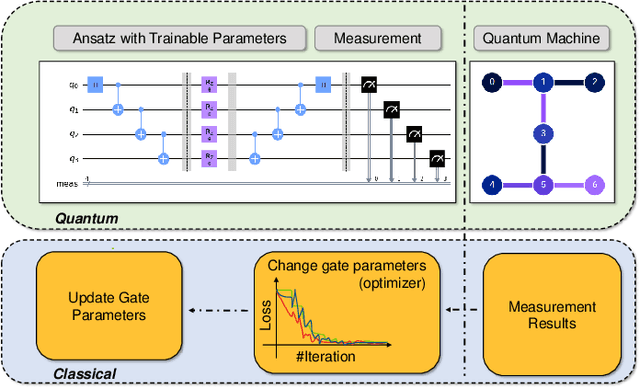
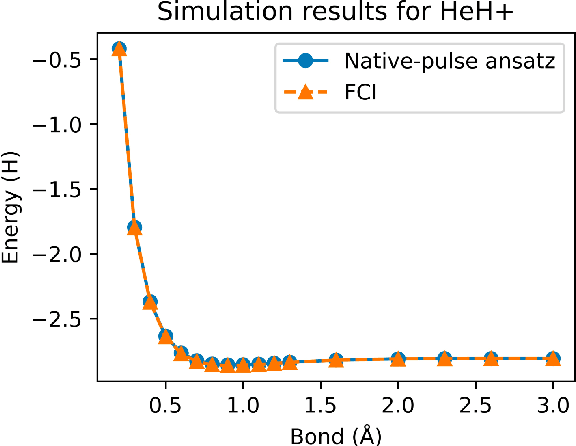
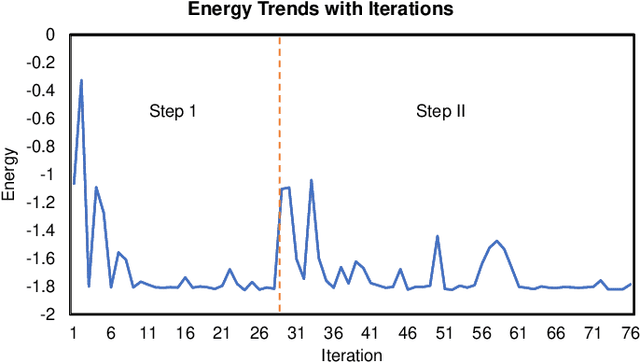

Abstract:Variational quantum algorithms (VQAs) have demonstrated great potentials in the NISQ era. In the workflow of VQA, the parameters of ansatz are iteratively updated to approximate the desired quantum states. We have seen various efforts to draft better ansatz with less gates. In quantum computers, the gate ansatz will eventually be transformed into control signals such as microwave pulses on transmons. And the control pulses need elaborate calibration to minimize the errors such as over-rotation and under-rotation. In the case of VQAs, this procedure will introduce redundancy, but the variational properties of VQAs can naturally handle problems of over-rotation and under-rotation by updating the amplitude and frequency parameters. Therefore, we propose PAN, a native-pulse ansatz generator framework for VQAs. We generate native-pulse ansatz with trainable parameters for amplitudes and frequencies. In our proposed PAN, we are tuning parametric pulses, which are natively supported on NISQ computers. Considering that parameter-shift rules do not hold for native-pulse ansatz, we need to deploy non-gradient optimizers. To constrain the number of parameters sent to the optimizer, we adopt a progressive way to generate our native-pulse ansatz. Experiments are conducted on both simulators and quantum devices to validate our methods. When adopted on NISQ machines, PAN obtained improved the performance with decreased latency by an average of 86%. PAN is able to achieve 99.336% and 96.482% accuracy for VQE tasks on H2 and HeH+ respectively, even with considerable noises in NISQ machines.
A Synergistic Compilation Workflow for Tackling Crosstalk in Quantum Machines
Jul 19, 2022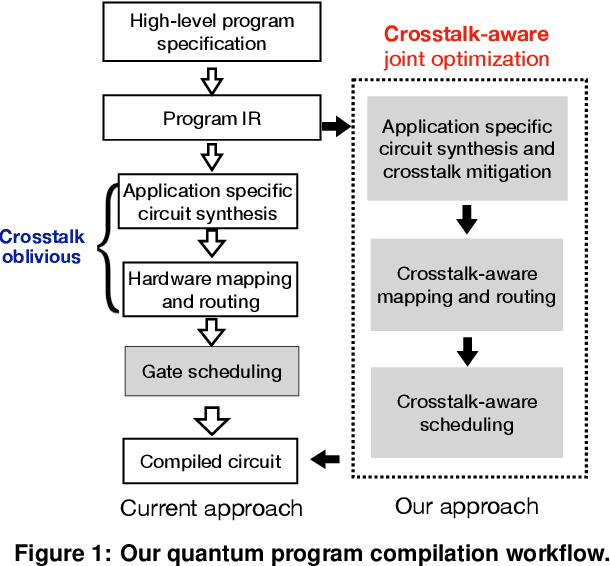
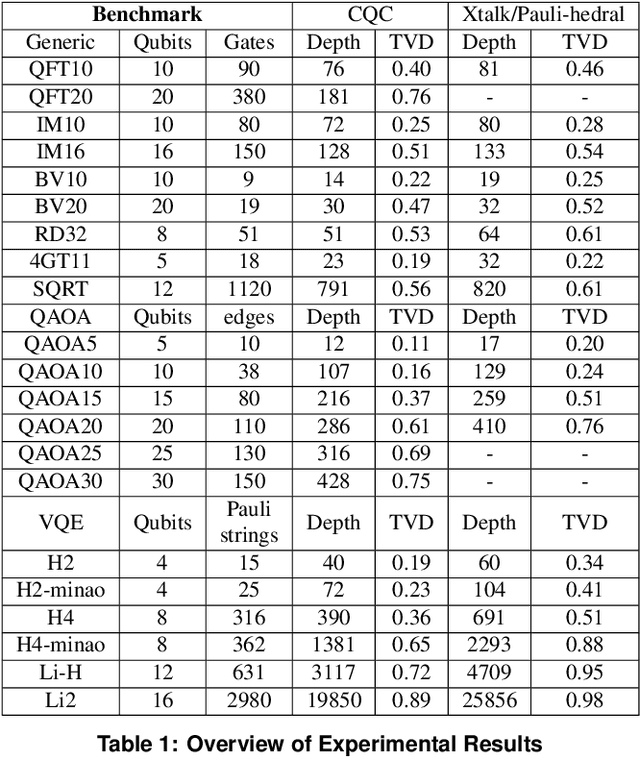
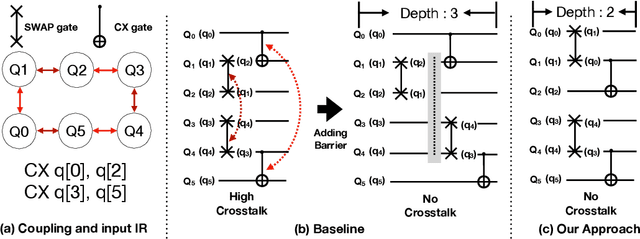
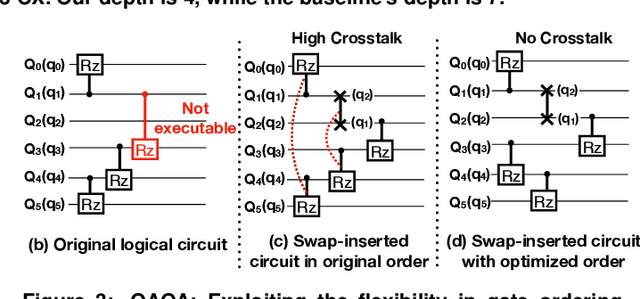
Abstract:Near-term quantum systems tend to be noisy. Crosstalk noise has been recognized as one of several major types of noises in superconducting Noisy Intermediate-Scale Quantum (NISQ) devices. Crosstalk arises from the concurrent execution of two-qubit gates on nearby qubits, such as \texttt{CX}. It might significantly raise the error rate of gates in comparison to running them individually. Crosstalk can be mitigated through scheduling or hardware machine tuning. Prior scientific studies, however, manage crosstalk at a really late phase in the compilation process, usually after hardware mapping is done. It may miss great opportunities of optimizing algorithm logic, routing, and crosstalk at the same time. In this paper, we push the envelope by considering all these factors simultaneously at the very early compilation stage. We propose a crosstalk-aware quantum program compilation framework called CQC that can enhance crosstalk mitigation while achieving satisfactory circuit depth. Moreover, we identify opportunities for translation from intermediate representation to the circuit for application-specific crosstalk mitigation, for instance, the \texttt{CX} ladder construction in variational quantum eigensolvers (VQE). Evaluations through simulation and on real IBM-Q devices show that our framework can significantly reduce the error rate by up to 6$\times$, with only $\sim$60\% circuit depth compared to state-of-the-art gate scheduling approaches. In particular, for VQE, we demonstrate 49\% circuit depth reduction with 9.6\% fidelity improvement over prior art on the H4 molecule using IBMQ Guadalupe. Our CQC framework will be released on GitHub.
 Add to Chrome
Add to Chrome Add to Firefox
Add to Firefox Add to Edge
Add to Edge